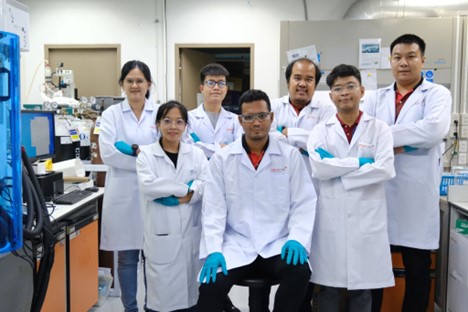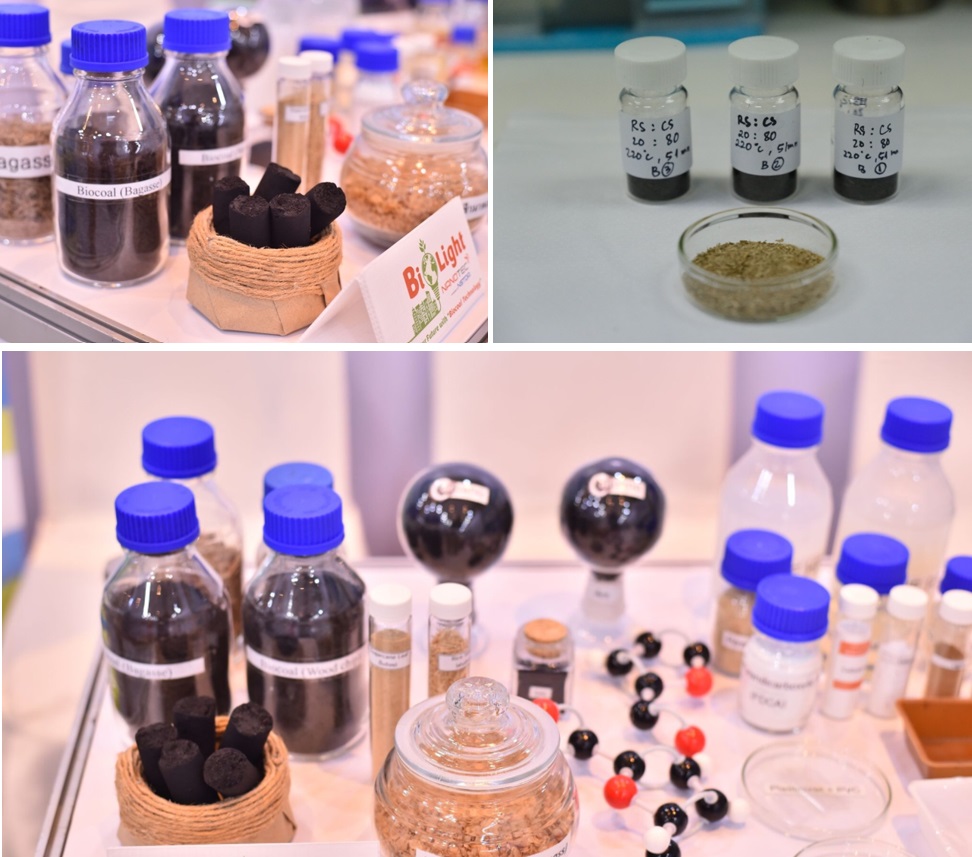As an agricultural-based country, Thailand has abundant agricultural waste with significant potential for energy production. A research team at NANOTEC-NSTDA, led by Dr. Sanchai Kuboon, conducted a research project to turn these by-products into BioCoal to be used in the coal fired power plant for electricity generation.

The research team employed torrefaction technology to convert biomass into solid fuel. Torrefaction is a thermochemical process that subjects biomass to temperatures ranging between 200 and 300 °C. During torrefaction, the moisture and volatile organic components are released from biomass, resulting in a high-grade solid biofuel.
The study focused on designing optimal conditions for torrefaction of each feedstock and evaluating the properties of torrefied biomass, or BioCoal. A wide range of materials were investigated, including sugarcane leaves, cassava rhizomes, palm kernel shells, and eucalyptus bark. BioCoal produced from the investigation has a calorific value of 18-24 MJ/kg – comparable to coal, a density of 0.65-0.75 kg/l and a moisture content of 1-5 wt%. Compared to wood chips and wood pellets, BioCoal has higher energy content and lower moisture. With heating value comparable to coal, BioCoal can be used as co-firing with coal or full replacement of coal in the coal fired power plant.
As the global reserves of fossil fuel diminish, BioCoal not only emerges as a sustainable and renewable energy source, but also presents significant business opportunities. Its development follows the concept of Bio-Circular-Green Economy (BCG), facilitating the sustainable development in economic, social, and environmental dimensions.

